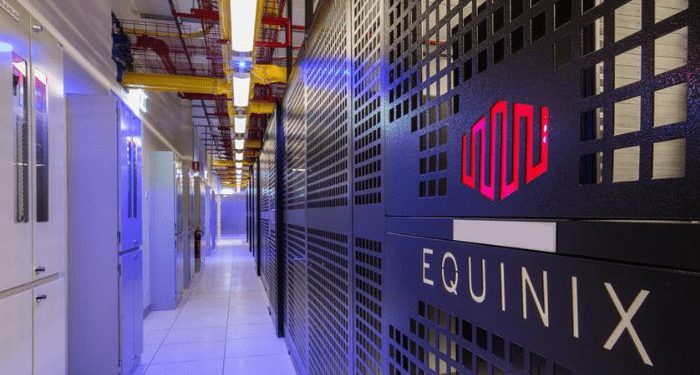Eight months after acquiring MainOne for $320 million, Equinix is making its message clear: it’s not here to compete, but to connect. On June 20, 2025, the company hosted a community meeting in Nigeria with leaders from across the digital and telecom sectors.
“We’re not here to compete; we want to be an enabler in the market,” said Brenden Rawle, Equinix’s Senior Director of Business Development for EMEA.
Wole Abu, Managing Director for West Africa, backed this up: “We create a platform for everyone to thrive. So while we have local routes, we now have global connections.”
Equinix runs over 260 global data centres called IBXs. These sites host key services—data colocation, cloud links, and internet exchange points. But in Nigeria, it plans to stay neutral. The aim? Support telecom growth without displacing local operators.
At the heart of this plan is Equinix Fabric—a digital platform that connects data centres, networks, and cloud providers in real-time. The tool lets businesses form secure, direct links, skipping traditional internet routes.
The result? Lower costs, faster speeds, and better service.
“Equinix Fabric is one of my favorite tools. It inspires innovation,” said Oluwasayo Oshadami, Director, Solutions Architects. “You spin up connections when you need them, spin them down when you don’t.”
Fabric went live in South Africa in May 2025 and will launch in Lagos by mid-2026. It’s already active in 63 cities around the world.
Equinix’s global-local model is central to its African growth. “We are a global company, but we must act locally,” said Rawle. “Success means building a platform that welcomes everyone: providers, networks, fintechs, enterprises.”
The acquisition of MainOne gave Equinix credibility in Nigeria. The company has already invested more in upgrades and plans to build new sites like LG3, LG4, and LG5. “Our roadmap includes new facilities,” Rawle said. “LG4, launching in 2027, will be even larger.”
But challenges remain. Power, regulation, and infrastructure gaps still slow growth. Equinix is now working with policymakers across the region. “Many governments want to be AI hubs, but they underestimate the infrastructure it requires,” Rawle noted.
Equinix now serves over 4,000 global clients and handles more than 64,000 interconnections.






















































